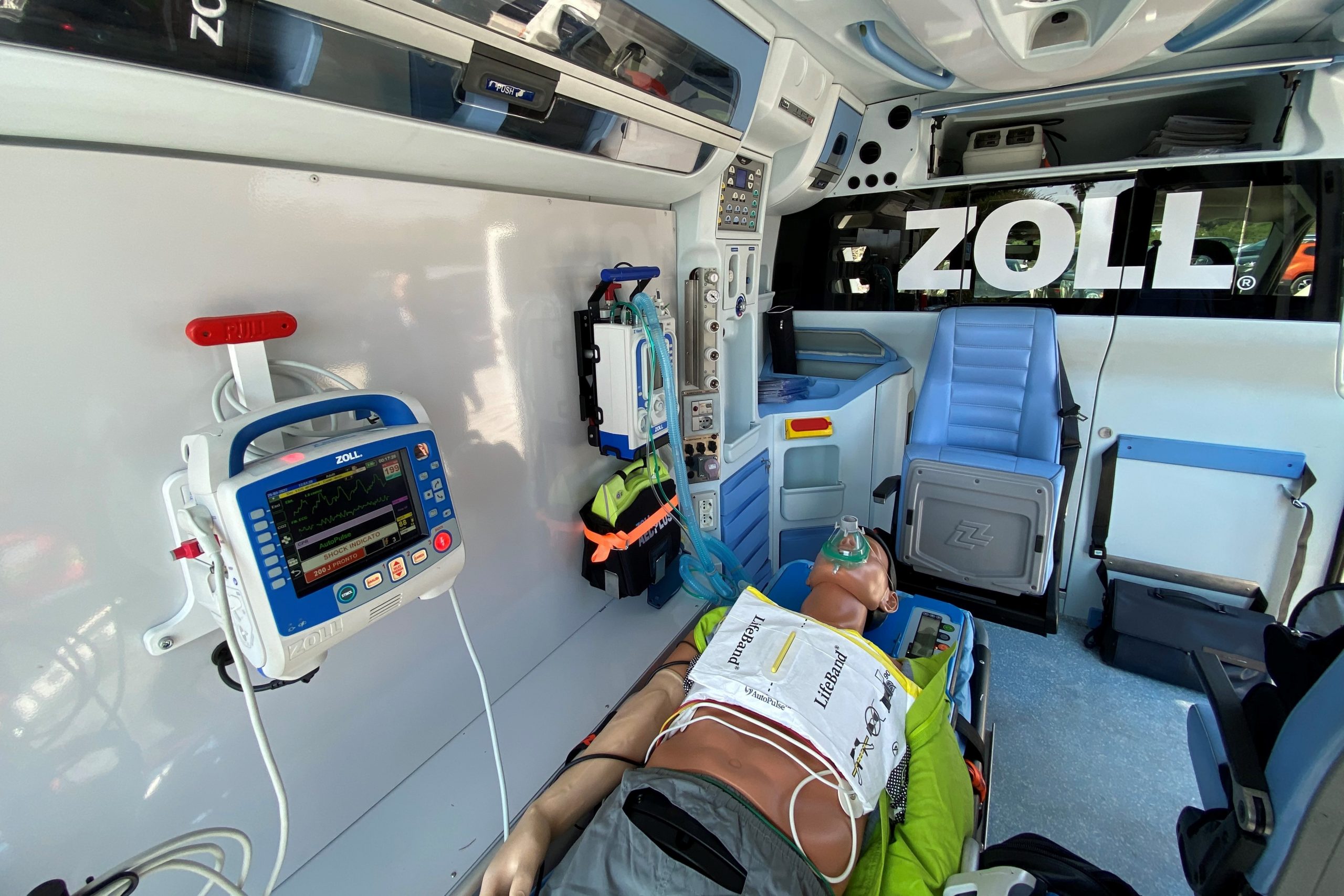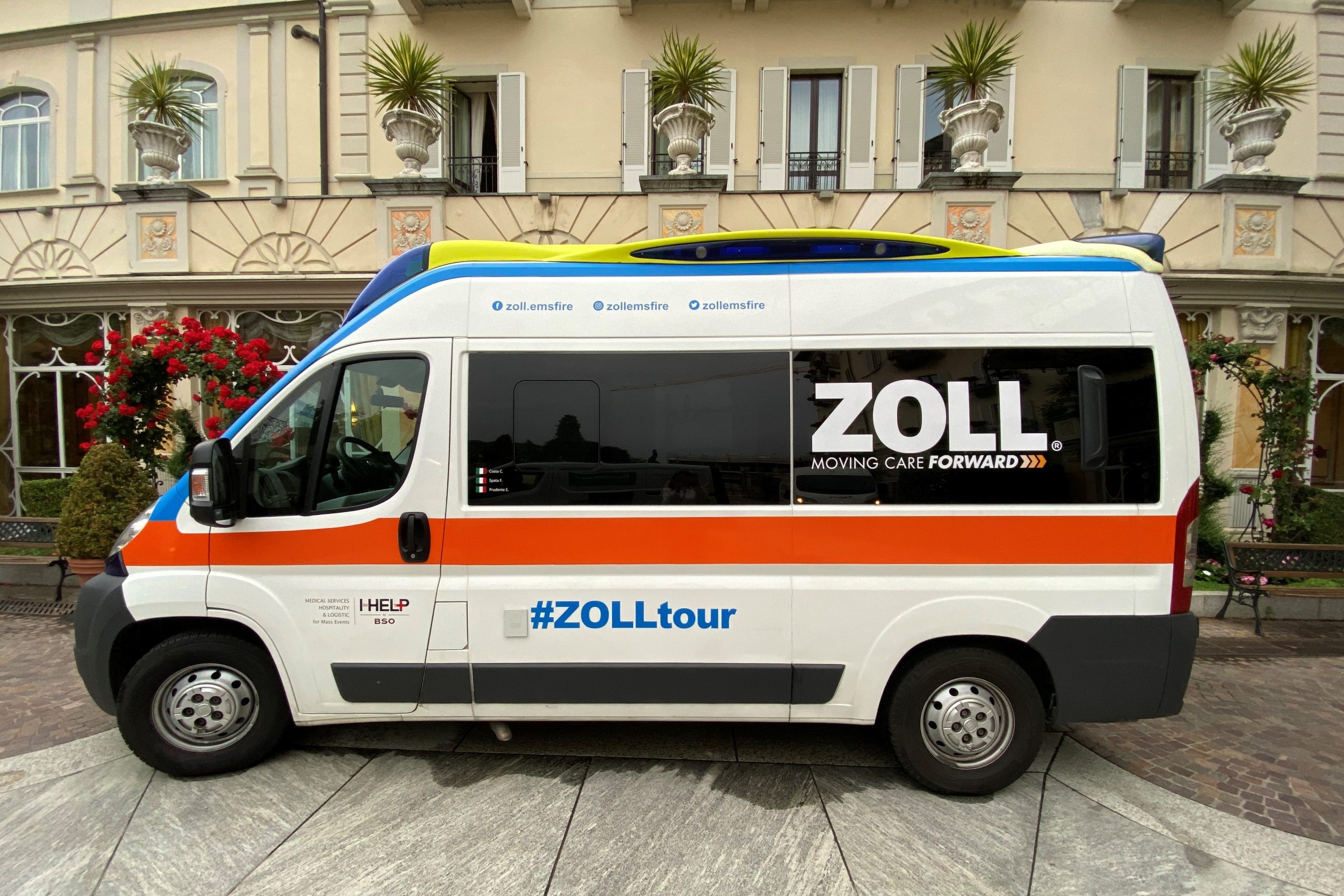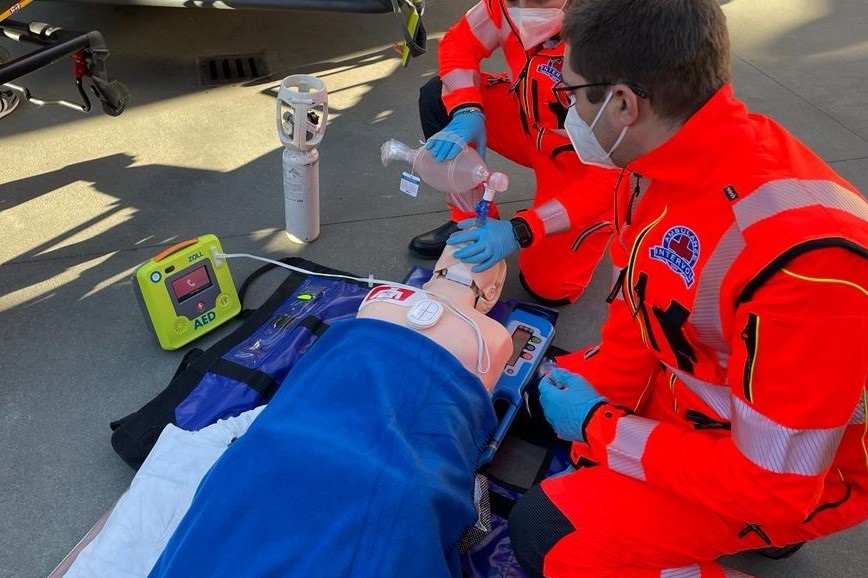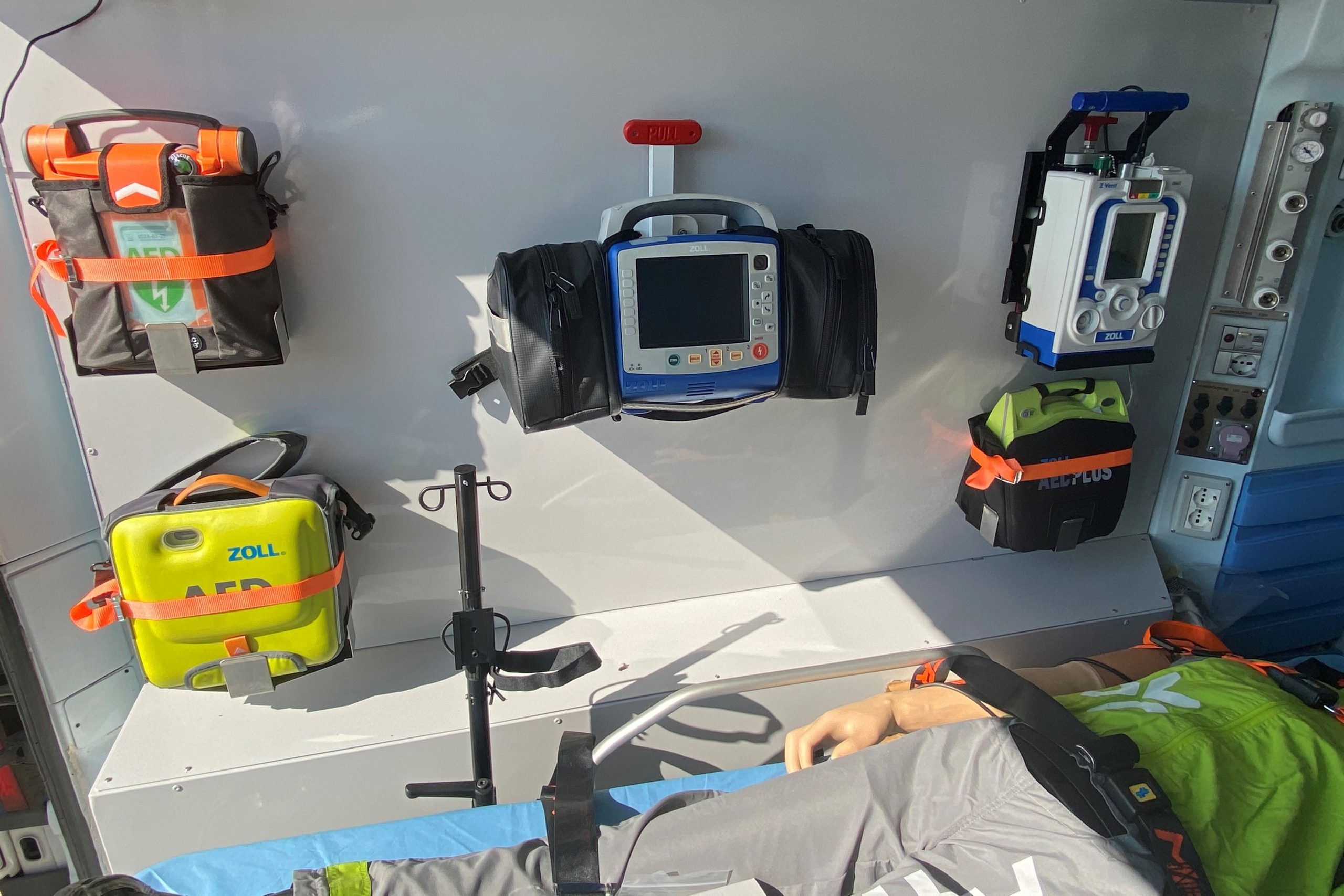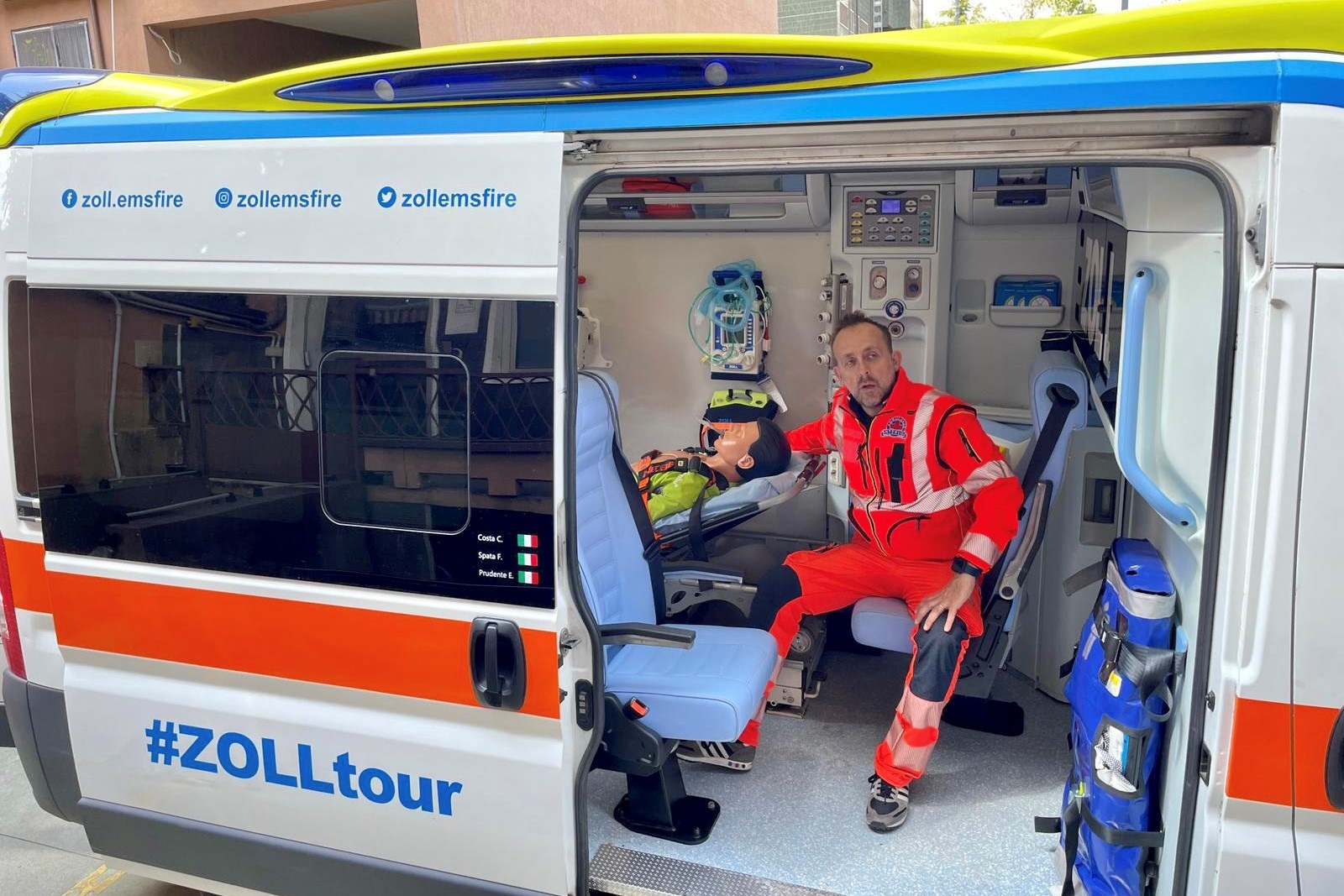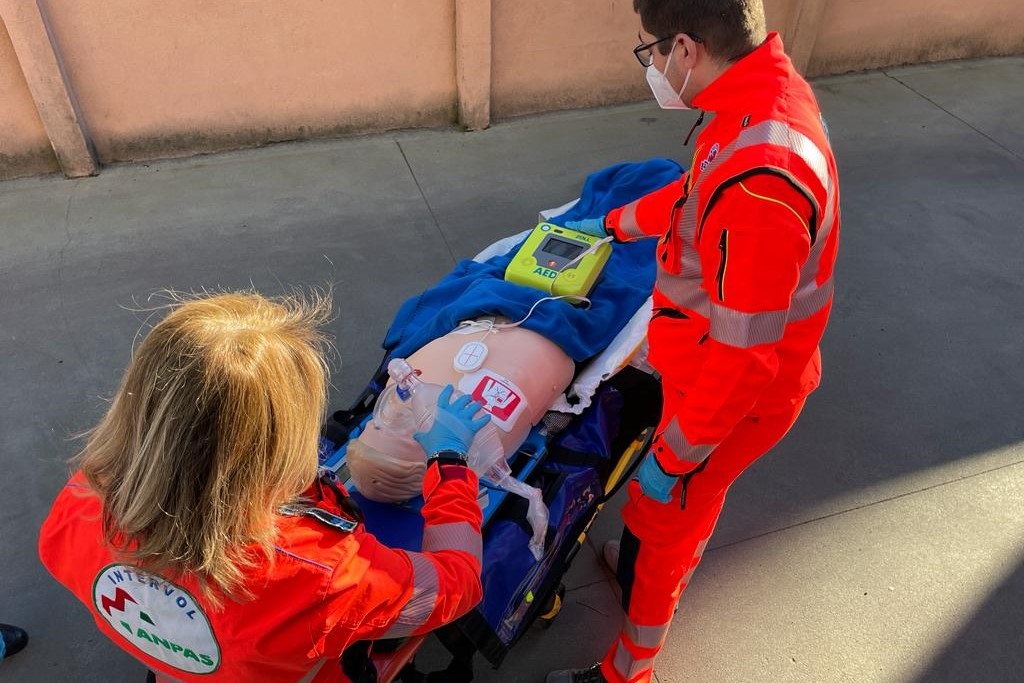
Emergency, the ZOLL Tour kicks off. First stop, Intervol: volunteer Gabriele tells us about it
ZOLL and I-Help together for the promotion of the ZOLL Tour, a campaign aimed at introducing rescuers to a wide range of emergency products, including defibrillators, lung ventilators, mechanical CPR and data solutions. The Intervol Association hosted the first leg of the tour
ZOLL Medical Corporation, a leading medical device manufacturer, is pleased to present, in collaboration with I-Help, a company operating in the field of medical transportation, the ZOLL Tour
The ZOLL Tour campaign aims to promote education and training in the world of emergency-urgency in Italy through touring tours, meetings and simulated scenarios with the help of a fully equipped vehicle.
ZOLL, which has always been at the side of Italian rescuers, intends to be a point of reference for the non-hospital market.
Its product line, including monitors/defibrillators, lung ventilators, AEDs, mechanical CPR, and data solutions, is intended to respond promptly to the ever-increasing demands for data transmission and telemedicine.
With the contribution of I-Help, which has been ready to respond to every healthcare support need for years, ZOLL wishes to offer, during the stages of the ZOLL Tour, a complete overview to those who are engaged in saving lives every day.
Active in managing the transfer of people in critical situations, I-Help employs the latest ambulances, vehicles for transporting the disabled, aircraft and helicopters.
ZOLL, a company that is particularly attentive to patient care, offers medical devices including AEDs (semi-automatic external defibrillator) for public access, instruments designed not only for the Emergency, but also for volunteer teams.
And to stay on the subject of rescuers, one of the first stops on the ZOLL Tour took place at Intervol, a voluntary association founded in ’76
To find out more, we asked Gabriele Bove, a rescuer who has been volunteering at Intervol for 30 years.
“Intervol,” explains Bove, “has been operating in the Milan area for over 40 years
“During these years, and compared to when I started in ’92, there have been many changes, particularly in terms of training hours.”
“The evolution of the healthcare system requires more and more skills and commitment, especially from the training point of view. This is, unfortunately, an ongoing problem for many volunteers: the more time training takes, the more difficult it is for people to decide to do it after work.”
In addition to this, the world of work has also changed today: whereas until 20 years ago everyone had their day shift, this is not always the case now.
The lack of a fixed job and the continual variation in working hours have a significant impact on the choice and possibility of undertaking volunteer training.
To worsen the volunteer situation – which had already been declining since before the pandemic – the Covid emergency intervened two years ago, completely paralysing training sessions during the first wave.
“While at the beginning,” the rescuer continues, “we were forced to completely stop the training hours, during the second wave the courses went from being in presence to being in DAD – distance mode – just like schools.”
“Obviously the lack of human contact affected not only the preparation of the rescuers, but also the actual life of the association: volunteering is that thing that makes you reach out your hand to that person in need and make you feel part of the system.”
These failures have caused – in all voluntary associations – a gap of a year. The absence of training courses has almost wiped out the intake of volunteers, which, on the contrary, does not go hand in hand with the outgoings.
So, not only were so many places left unfilled, but the new volunteers, being forced to take classes remotely, did not even have the chance to get proper training.
What’s more, Bove tells us, ‘the new people couldn’t go out on the vehicles: PPE resources – personal protective equipment – were in short supply, so 118 decided to limit the number of people on the ambulances.
But the presence on the vehicle of that fourth rescuer – considered superfluous because he is in training – is of vital importance to us: in turn he will become the third and then the second of the equipment and so on.”
Intervol places particular emphasis on staff training
While by law, a retraining should be carried out every two years and a re-training every five, the association spends a lot of time on reviews and exercises.
“At Intervol,” explains Bove, “we constantly have training and retraining sessions.
We always leave three dummies at the headquarters, one adult, one paediatric and one neonatal at the disposal of the volunteers.”
“In each team there is a trainer – either from 118 or an in-house trainer – who guides the youngsters through the drills and rehearsals. Also, when we have new volunteers, we hire them as switchboard operators and show them the system even before the end of the course.”
Teams of volunteers aside, in Gabriele Bove’s opinion, training should not only be of interest to rescue workers, but also to ordinary citizens.
In these terms, resuscitation occupies a fundamental chapter, but not only
‘In my opinion,’ says the rescuer, ‘resuscitation and first aid should become a compulsory subject in schools. Learning how to make a CPR call (as happens in northern countries) and cardiac massage would be very important.”
“Finding a person who, at the time of a cardiac arrest, is already doing CPR on the spot would help the rescuer’s success first and the doctor’s success later.”
In this regard, it seems, fortunately, that there is nowadays more awareness and sensitivity among citizens regarding time-dependent diseases (cardiac arrest, stroke, etc.).
In fact, the number of people, mostly companies, who decide to undertake training in first aid manoeuvres has increased a lot.
“We, as an association, provide BLSD – Basic Life Support & Defibrillation – and PBLSD – Pediatric Basic Life Support & Defibrillation – courses, while 118 promotes IRC – Italian Resuscitation Council – courses.”
And still in terms of resuscitation and cardiac arrest, the considerable role played by defibrillators cannot be overlooked.
“Our defibrillators,” Bove explains, “are all semi-automatic (AED): that is, they have two buttons, a power button and a red discharge button.
Unlike these, the automatic ones only have the power button.
In association, we always use those of the first type, in particular the ZOLL defibrillators that are normally given to us by hospitals.”
In the beginning, because of the training hours (which must be 120), life for the volunteer is not easy.
His presence is required three times a week.
Once the training period is over, however, it is only necessary to provide rescue services once a week.
“Those who are willing to volunteer,” Bove concludes, “are self-satisfied: you just have to take the first step and approach them.”
“Unfortunately, however, the number of volunteers is steadily decreasing; it is a job that is moving more and more towards professionalism and that will, of necessity, have a rather significant economic impact.”
Read Also:
Emergency Live Even More…Live: Download The New Free App Of Your Newspaper For IOS And Android
The Patient’s ECG: How To Read An Electrocardiogram In A Simple Way
ZOLL Aquires Payor Logic – Customers Can Expect Unprecedented Bottom Line Improvements
Patient Procedures: What Is External Electrical Cardioversion?
Increasing The Workforce Of EMS, Training Laypeople In Using AED
Difference Between Spontaneous, Electrical And Pharmacological Cardioversion
What Is Takotsubo Cardiomyopathy (Broken Heart Syndrome)?
ZOLL At Reas 2021: All The Info On Defibrillators, Ventilators And Mechanical CPR
ZOLL Announces Closing Of Acquisition Of Itamar Medical
Emergency Data Management: ZOLL® Online Europe, A New European Cloud-Based Platform To Be Discovered
Italy, The Socio-Cultural Importance Of Voluntary Health And Social Work
Heart Disease: What Is Cardiomyopathy?
What Is Takotsubo Cardiomyopathy (Broken Heart Syndrome)?


